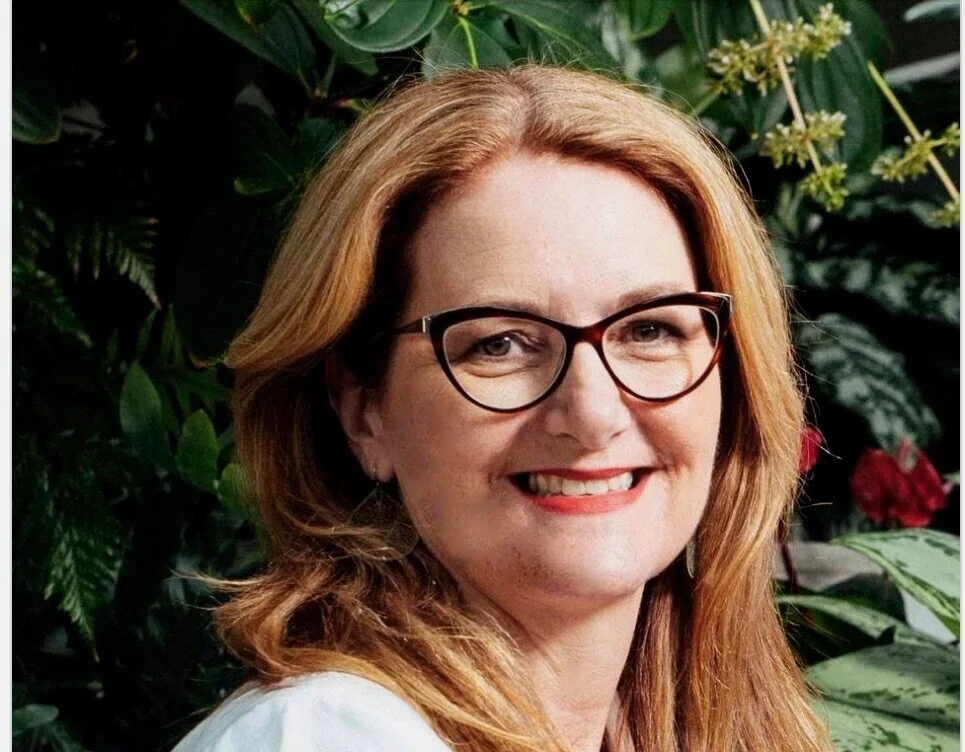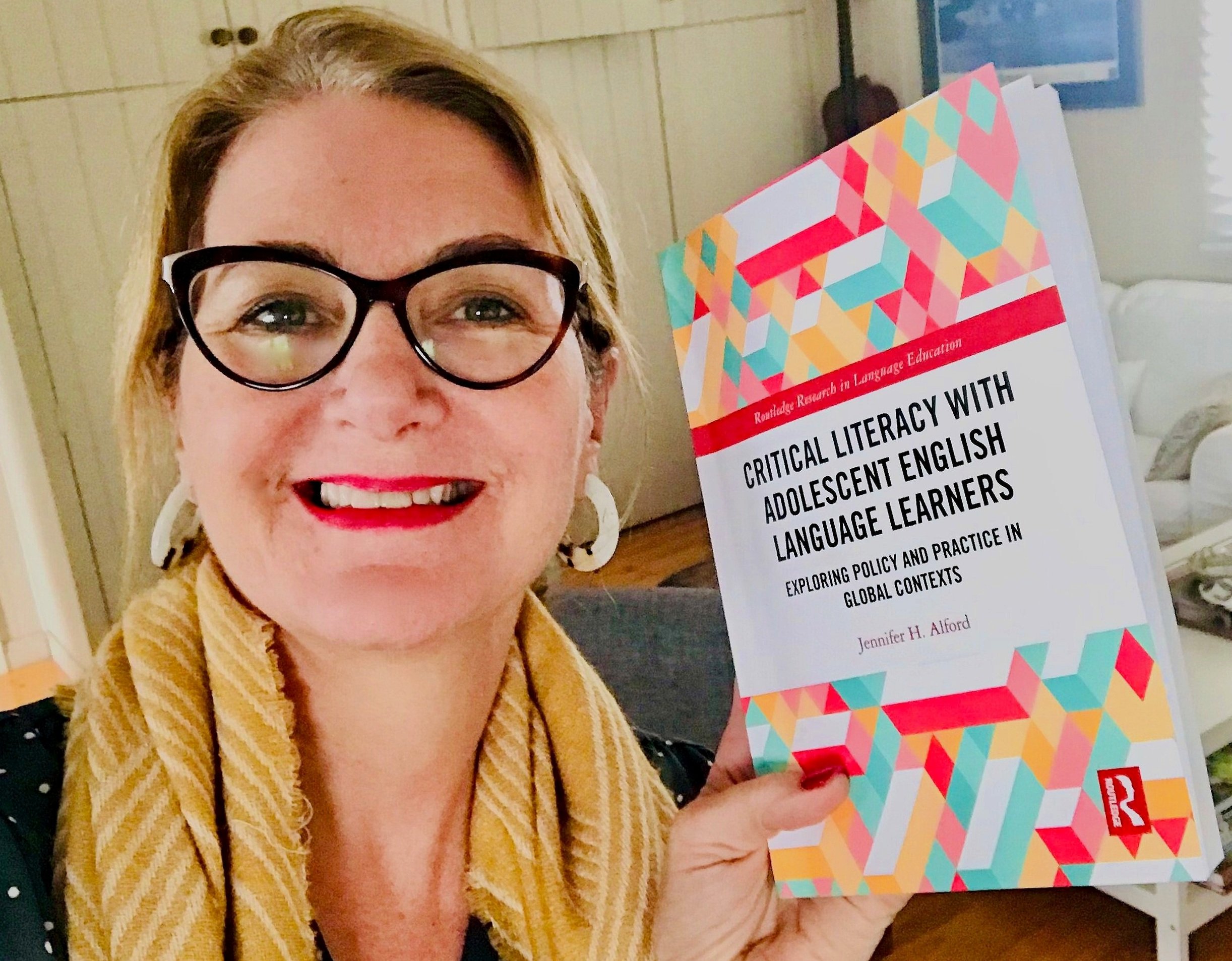
Empowering teachers to help youth fully engage with what and how they read and view in and out of school.
About this site…
This site is based on my Australian Research Council research project. It is a site for researchers, teachers and community educators who want to understand how to help migrant and refugee-background youth learn to read and view everyday texts more critically. Research tells us that one of the most important skills young people need today to navigate their complex textual worlds is the ability to read and view with a critical eye; to think about how texts “work” and how they “work on us”; to think about how we might respond to what we read and view, especially online, in informed ways. Here, you will find information about my research project, and other useful research and resources to guide your own practice.
About me:
Assoc. Professor Jennifer Alford
ARC Research Fellow.
Griffith Institute of Education Research, Griffith University, Brisbane, Australia.
I was a high school English teacher who worked with migrant and refugee-background adolescents and adults for over 12 years in Australia, and have been a teacher educator for the past 22 years. I work with teachers to help them find ways to make their content lessons more accessible and meaningful for English learners and to help them include critical literacy learning as part of their regular teaching.
Click here for all of my publications.
Click here for information about how to buy my book:
Alford, J. H. (2021). Critical Literacy with Adolescent English Language Learners: Exploring Policy and Practice in Global Contexts. Routledge.

About my research project.
ARC-funded DECRA project 2021-2024
My project investigates how migrant and refugee-background youth learn to read critically in school, and in everyday, out-of-school contexts. Youth engage in the complex online worlds of websites, Apps, digital gaming and other media, posing both opportunities and risks.
Their challenge is navigating learning to read English, and to read critically in English.
Using qualitative methods, this study will identify the critical reading practices of these youth, and create resources to enhance their critical reading skills out-of-school.
Drawing connections between in and out of school reading benefits migrant and refugee-background youth and teachers to strategically manage critical reading in complex, contemporary reading environments.

Research and references for teachers
Research works relevant to teaching critical literacy with English learners:
Refugee and migrant education
Dooley, K. (2012). Positioning refugee students as intellectual class members. In F. McCarthy & M. Vickers (Eds.), Refugee and immigrant students: Achieving equity in education (pp. 3-20) Information Age Publishing.
McIntyre, J., & Abrams, F. (2021). Refugee Education: Theorising Practice in Schools. Routledge.
Diversity and difference
Alford J. (2014). “Well, hang on, they're actually much better than that!”: Disrupting dominant discourses of deficit about English language learners in senior high school English, English Teaching: Practice and Critique, 13(3), 71-88.
Valencia R. (2010). Dismantling Contemporary Deficit Thinking. Routledge.
Valencia, R., (2019). International deficit thinking: Educational thought and practice. Routledge.
Critical literacy (in general)
Alford, J. (2023). Exploring critical media literacy with culturally and linguistically diverse youth in Australia: Recontextualisation of school learning in home environments. English in Education. 57 (4). https://doi.org/10.1080/04250494.2023.2268643 OPEN ACCESS
Anwarrudin, S. (2015). Why critical literacy should turn to ‘the affective turn’: making a case for critical affective literacy. Discourse: Studies in the Cultural Politics of Education 37 (3), 381-396.
Janks, H. (2010). Literacy and power. Routledge.
Janks, H. (2014). The importance of critical literacy. In J. Z. Pandya & J. Avila (Eds.), Moving critical literacies forward – A new look at praxis across contexts. (pp. 32-44). Routledge
Janks, H., & Comber, B. (2007). Critical literacy across the continents. In M. Mackey (Ed.), Media literacies: Major themes in education (pp. 351-372). Routledge
Lau, S. (2013). A study of critical literacy work with beginning English language learners: An integrated approach. Critical Inquiry in Language Studies, 10(1), 1- 30.
Luke A. (2000). ‘Critical literacy in Australia: A matter of context and standpoint’. Journal of Adolescent & Adult Literacy, 43(5), 448–61.
Luke, A. (1995). When basic skills and information processing just aren’t enough: Rethinking reading in new times. Teachers’ College Record, 97, 95-115.
Critical digital literacy
Ehret, C. (2024). Critical Literacy in Algorithmic Cultures. Literacy.
Pandya, J. (2019). Exploring critical digital literacy practices: Everyday video in a dual language context. Routledge
Pangrazio, L. (2019). Young people’s literacies in the digital age : Continuities, conflicts and contradictions. Routledge.
Wohlwend, K., & Lewis, C. (2011). Critical literacy, critical engagement and digital technology - convergence and embodiment in glocal spheres. In D. L. D Fisher (Ed.) Handbook of Research on Teaching the English Language Arts, 188-194.
Bi/multilingual/ second language, and translanguaging education
Alford, J., & Kettle, M. (2021). Defining bilingualism, multilingualism and plurilingualism: Innovations in teaching for diversity in mainstream classrooms. In R.E. Arber, M. Weinmann, & J. Blackmore (Eds). Rethinking Languages Education: Directions, Challenges and Innovations. Routledge
Alford, J. (2019). Teaching critical literacy with EAL/D learners: Making the most of diverse languages. In R. Henderson (Ed). Teaching Literacies– pedagogies and diversity. 2nd edn. Pp. 315-338. Oxford University Press.
Lau, S. (2019). Convergences and alignments between translanguaging and critical literacies work in bilingual classrooms. Translation and Translanguaging in Multilingual Contexts, 5 (1), 67 – 85.
Lau, S., Juby-Smith, B., & Desbiens, I. (2017). Translanguaging for Transgressive Praxis: Promoting Critical Literacy in a MultiAge Bilingual Classroom, Critical Inquiry in Language Studies, 14, 1, 99-127.
Luke, A., & Dooley, K. (2011). Critical literacy and second language learning. In E. Hinkel (Ed.), Handbook of research in second language teaching and learning (Vol. 2, pp. 856-868). Routledge
Teaching reading with EAL learners
Hammond, J. (2006). High challenge, high support: Integrating language and content instruction for diverse learners in an English literature classroom. Journal of English for Academic Purposes, 5(4), 269-283
I’m delighted to share my book with you. Available at all good booksellers online. Enjoy.
Critical Literacy with adolescent English language learners: Policy & practice in global contexts. Routledge 2021

Out now!!
The Routledge Handbook of Critical Literacies
Edited by Jessica Zacher Pandya, Raul Alberto Mora, Jennifer H. Alford, Noah A. Golden, and Roberto, S. de Roock, this 50 chapter
volume captures research and forward thinking from pre-eminent and emergent scholars from around the world.
“In a peaceful world without the threat of global warming or conflict or war, where everyone has access to education, health care, food and a dignified life, there would still be a need for critical literacy.”
(Hilary Janks, 2012)

By “critical” we mean ways that give students tools for weighing and critiquing, analysing and appraising the textual techniques and ideologies, values and positions. The key challenge … is how to engage students with the study of “how texts work” semiotically and linguistically, while at the same time taking up explicitly how texts and their associated social institutions work politically to construct and position writers and readers in relations of power and knowledge (or lack thereof). (Luke, O’Brien & Comber 1994. p. 35).
Luke A., O’Brien J. & Comber B. (1994). ‘Making community texts objects of study’. Australian Journal of Language and Literacy, 17(2), 39–149

